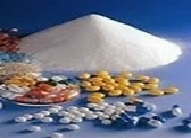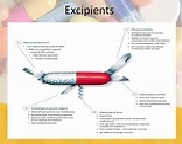EXCIPIENTS
Excipients are substances other than active pharmaceutical ingredients in finished pharmaceutical dosage forms. Almost all drug dosage forms include some kind of excipient to guarantee the dosage, stability, and bioavailability. Currently, approximately 1000 excipients of more than 40 functional categories are used in marketed pharmaceutical products.
Excipients range from inert and simple to active and complex substances that can be difficult to characterize. Traditionally, excipients were often structurally simple, biologically inert, and of natural origin, such as corn, wheat, sugar, and minerals. Many more novel and increasingly complex excipients have been developed as novel drug formulation delivery systems emerge and evolve. The inert and innocuous nature of excipients is no longer a given feature in drug formulations. Many excipients are potential toxicants at high doses in animals, though safe in humans at therapeutic doses, including commonly used excipients such as cyclodextrins, dextrans, and polyethylene glycol.


